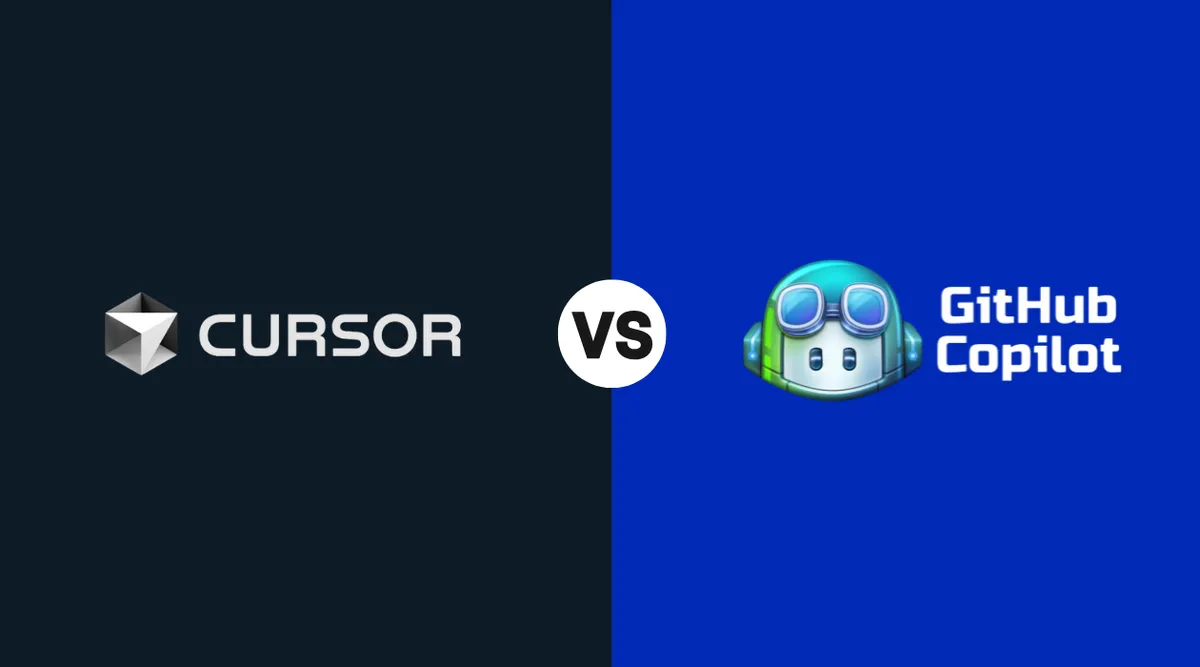As a backend developer passionate about clean systems and developer experience, I’ve spent over a year with GitHub Copilot in my day-to-day workflows. Whether building REST APIs in Go, navigating Kubernetes manifests, or tweaking SQL queries, Copilot has been a near-constant companion — quietly assisting, suggesting, and occasionally blowing my mind.
But recently, I decided to try Cursor, the new AI-powered code editor everyone’s buzzing about. After just a few days, I’ve got thoughts.
🧰 The Tools: What They Aim to Do
💭 My Perspective
I’m a big fan of Copilot — it changed the way I write code. The experience feels fluid and familiar, like the editor is finishing my thoughts.
That said, I was genuinely curious to try Cursor. Everyone in the dev community seems to be giving it a spin lately, so I wanted to see what the fuss was about.
And to be honest: Cursor is impressive.
🔍 What Cursor Does Really Well
🚀 Navigation between files is exceptional
Seriously. Jumping from one part of your codebase to another with AI-powered context is just better in Cursor. Whether it’s understanding a class, finding the next edit location, or getting a summary of a function — it’s built-in, fast, and intuitive.
⚙️ Multi-step commands feel native
Want to refactor a whole file? Ask Cursor. Need to understand the difference between two functions? Ask Cursor. It feels more like giving orders to an assistant who knows your codebase inside out.
🏃♂️ Copilot is playing catch-up
GitHub is introducing features like “Next Suggested Edit” — which is cool, but let’s be real: Cursor nailed that already.
🚀 Where Copilot Truly Shines
🐙 Native GitHub Integration
This is where Copilot’s GitHub heritage really shows. It doesn’t just understand your code — it understands your entire GitHub workflow. From pull request contexts to repository patterns, Copilot feels like it was built from the ground up to work with how developers actually use GitHub day-to-day.
🔌 Universal IDE Support
Whether you’re a VSCode devotee, Neovim purist, or JetBrains enthusiast, Copilot meets you where you are. This flexibility means you don’t have to change your entire development environment to get AI assistance — it adapts to your existing workflow.
🌐 Ecosystem Maturity
Being powered by GitHub means Copilot benefits from the largest code repository in the world. The training data, the community feedback, and the rapid iteration cycles all contribute to a tool that feels mature and reliable. Plus, features like Copilot Chat, Copilot CLI, and GitHub Codespaces integration create a cohesive development experience.
💸 Pricing & Value
Here’s where the scales tip.
- Cursor’s pricing is quite a bit steeper than Copilot’s.
- For devs like me who already get a ton of value from Copilot — it’s hard to justify the switch purely on price/performance ratio.
- Copilot’s GitHub integration adds significant value beyond just code completion — you’re not just paying for AI suggestions, you’re paying for a tool that understands your entire development ecosystem.
- If you’re on a budget or already happy with Copilot in your current stack, the difference probably isn’t worth it yet.
🏁 My Verdict
🏆 The Final Word
I loved using Cursor.
I’ll probably go back to it from time to time.
But for now — I’m sticking with Copilot.
Copilot still integrates beautifully into my workflow, and with new features being rolled out regularly, I think it’ll continue improving fast. Being powered by GitHub gives it an ecosystem advantage that’s hard to beat. Cursor shows what’s possible — but for now, Copilot remains the best balance of cost, speed, GitHub integration, and universal support in my dev toolbox.
💬 Let’s Discuss
“Both tools are game-changers. Use the one that makes you feel like a wizard.”

